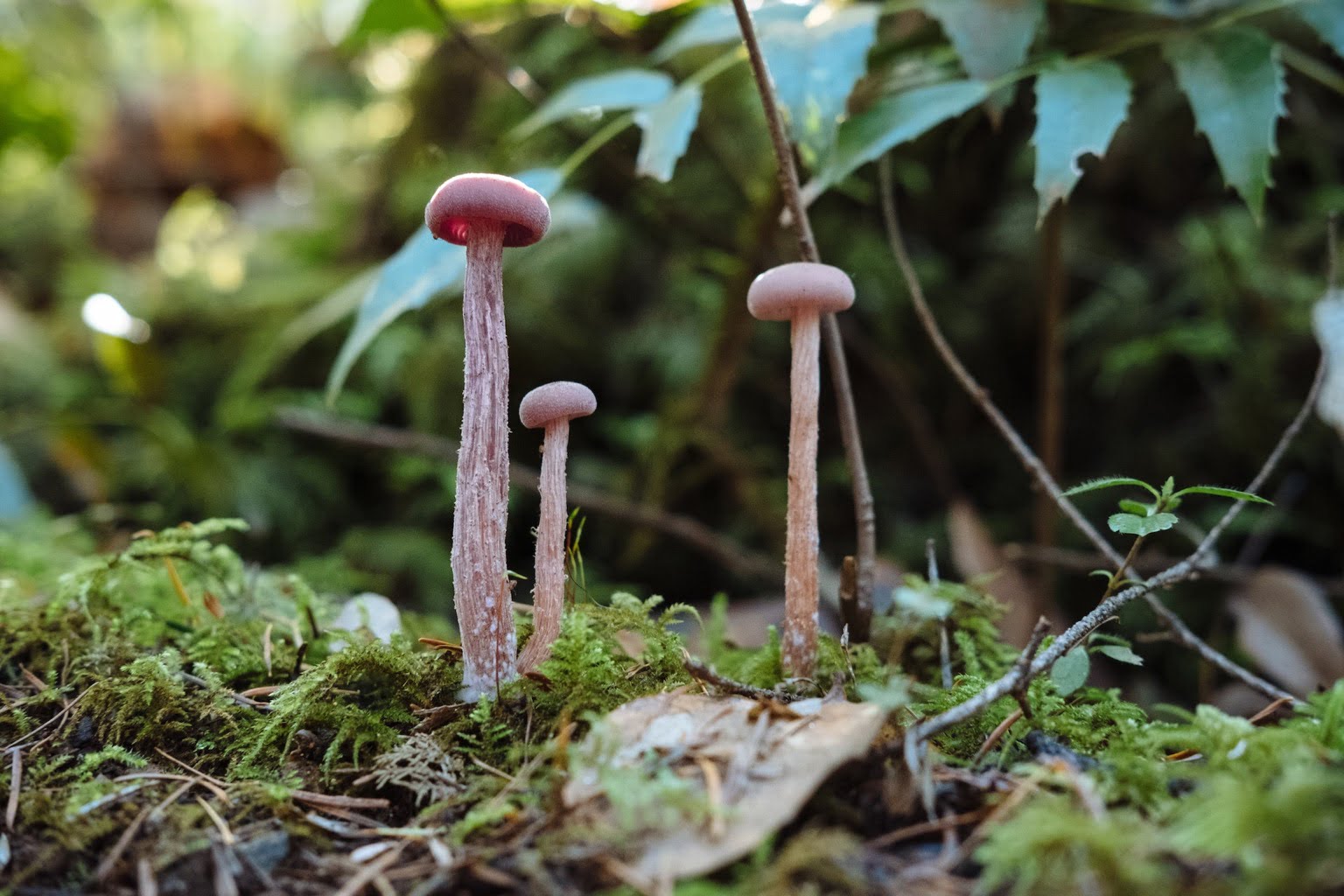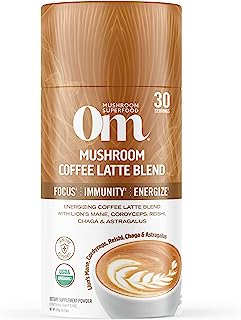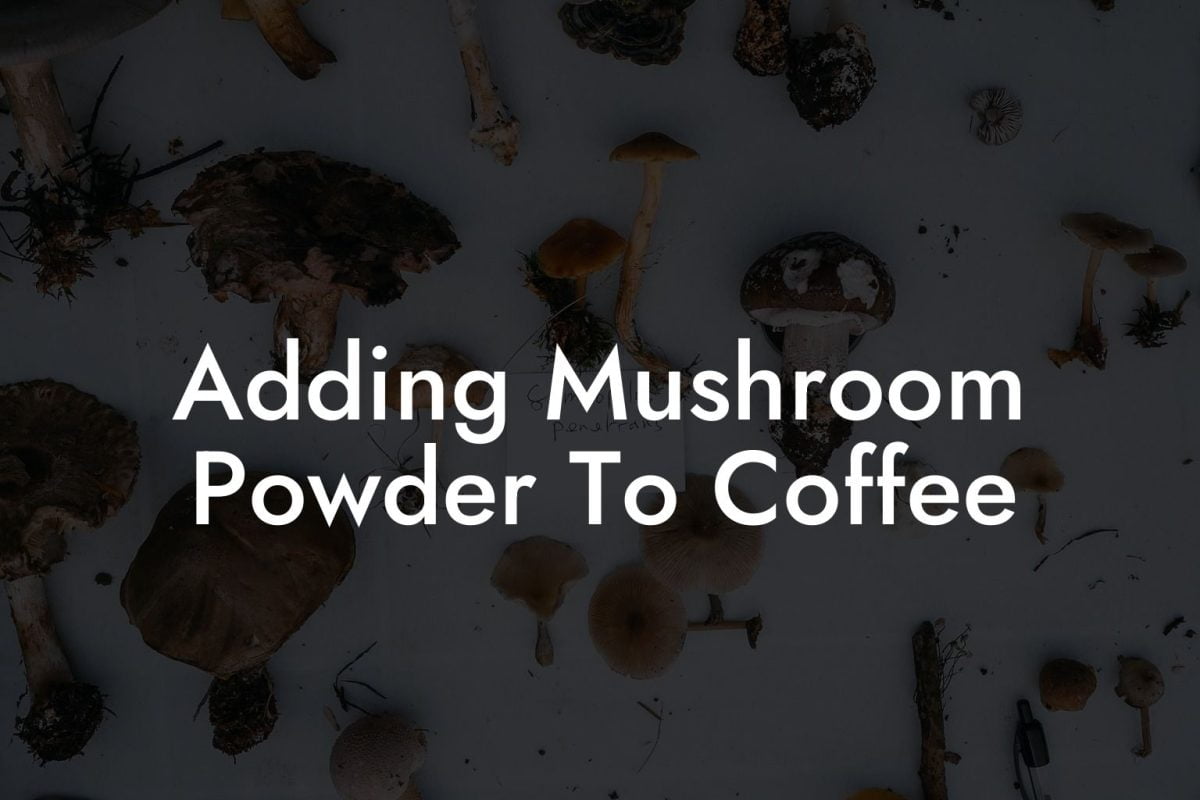Ever wondered if that trendy cup of Chaga tea you spotted on your Instagram feed is a magical elixir or just another buzzworthy fungal brew? If you’re on the hunt for a beverage that might just rock your wellness world, especially if you’re already vibing with mushroom coffee, then you’ve stumbled upon the right guide. We’re diving deep into the nitty-gritty of “Is Chaga Tea Safe?” in a way that’s as fun as it is informative. Grab your ethically sourced kombucha, and let’s spill the tea on this mushroom marvel.
Quick Links to Useful Sections
- Decoding Chaga: The Fungal Superstar
- The Science Behind Chaga: Nutritional Profile and Bioactive Compounds
- Assessing the Safety of Chaga Tea: What Does the Research Say?
- Unearthing the Potential Health Benefits of Chaga Tea
- Boosting Your Immune System
- Fighting Oxidative Stress
- Supporting Digestive Health
- Balancing Blood Sugar and Cholesterol Levels
- Dishing Out the Downsides: Potential Side Effects and Risks
- Digestive Upsets
- Blood Sugar and Blood Pressure Fluctuations
- Interactions with Medications
- Potential for Heavy Metal Exposure
- Who Should Exercise Caution with Chaga Tea?
- Chaga Tea vs. Mushroom Coffee: The Ultimate Fungal Face-Off
- Flavor and Aroma
- Energy Boost vs. Calm Clarity
- Health Benefits Beyond the Cup
- How to Brew Your Best Cup of Chaga Tea
- Source Responsibly
- The Perfect Preparation
- Steep It Right
- Customize Your Cup
- User Stories and Real-Life Experiences
- Case Study: The College Grad’s Energy Elixir
- Testimonial: The Wellness Blogger’s New Obsession
- User Tip: Incorporating Chaga into Mushroom Coffee Rituals
- Resources and Community Support: Your Next Steps
- Crafting a Personalized Chaga Tea Safety Plan
- Step 1: Do Your Homework
- Step 2: Consult a Health Professional
- Step 3: Source High-Quality Chaga
- Step 4: Start Small and Monitor
- Step 5: Adjust as Needed
- Integrative Approaches and Holistic Wisdom: Aligning Chaga Tea with Modern Lifestyles
- Mindful Consumption
- Combine with Other Adaptogens
- Socialize Your Rituals
- Chaga Tea Safety FAQs: Your Burning Questions Answered
- Your Next Step: Embracing a Holistic Fungal Journey
Decoding Chaga: The Fungal Superstar
Chaga (Inonotus obliquus) is not your average mushroom. Long celebrated in traditional folk medicine, this parasitic fungus grows on birch trees in the cold climates of Russia, Korea, and parts of Northern Europe. Over the centuries, shamans, herbalists, and modern-day health enthusiasts have swore by its potential to boost immunity, fight oxidative stress, and even support overall well-being.
But does its long history automatically mean it’s safe to sip? As with any natural remedy that’s trending today, it’s crucial to sift through the folklore and the science to see if chaga tea is truly the health game-changer it appears to be, or if there are some hidden pitfalls, especially in today’s fast-paced, ingredient-savvy lifestyle.
The Science Behind Chaga: Nutritional Profile and Bioactive Compounds
Chaga tea isn’t just a pretty face in your wellness routine; it’s packed with compounds that might actually do something good for your body. Research has spotlighted several bioactive compounds in chaga, including:
- Antioxidants: Chaga boasts supercharged antioxidants like melanin and polyphenols, which help combat free radicals that could otherwise throw oxidative stress into your system.
- Beta-D-Glucans: These naturally occurring sugars have been linked to immune modulation, potentially training your body’s defenses to be even more on point.
- Triterpenoids: Compounds that might play a role in reducing inflammation, a win for anyone feeling the pinch of everyday stress or post-workout soreness.
- Polysaccharides: These can boost immune responses and might even have anti-tumor activities. Though the research is still early, the buzz is real.
Integrating these components into your daily dose of chaga tea might offer some promising health benefits, but as with any potent potion, the dosage and quality are key. The phrase “natural” doesn’t always equal “risk-free,” so let’s dive into those crucial safety questions.
Looking For The Best Mushroom Coffee? You'll Love These:
Assessing the Safety of Chaga Tea: What Does the Research Say?
When it comes to chaga tea safety, it’s all about balance and context. The bulk of research shows that chaga, when prepared properly, is generally safe for most people. However, there are a few caveats you need to be aware of:
- Potential Contaminants: Since chaga grows on birch trees in the wild, it can sometimes absorb environmental pollutants such as heavy metals. Ensuring that you source your chaga from reputable suppliers is non-negotiable.
- Dosage Matters: Consuming chaga tea in moderation, roughly one to two cups a day for most adults, tends to be safe. Overindulgence might lead to unexpected side effects.
- Interactions with Medications: There’s some concern that chaga’s bioactive compounds could interact with blood-thinning medications (like warfarin) or immune-suppressing drugs. If you’re on any medication, it’s wise to consult with a healthcare professional before making chaga tea a staple.
The bottom line? Chaga tea appears safe for the vast majority of the curious and health-conscious crowd. Yet, mindful consumption and proper sourcing are the keys to avoiding potential pitfalls.
Unearthing the Potential Health Benefits of Chaga Tea
The allure of chaga tea isn’t just about safety, it’s also about the potential benefits it could bring to your bustling lifestyle. Here are a few ways chaga tea might just become your new favorite health hack:
Boosting Your Immune System
One of the most celebrated benefits of chaga tea is its potential to enhance immune function. Thanks to its rich array of antioxidants and beta-D-glucans, chaga tea may help your body mount a robust defense against everyday stressors and pathogens. Imagine giving your immune system a gentle nudge towards being more efficient, making the monster germs of daily life less intimidating.
Fighting Oxidative Stress
Modern life is noisy, stressful commutes, endless online notifications, and sleep that sometimes feels like a myth. Chaga tea’s heavy-duty antioxidants might help combat the oxidative stress that comes with such a hectic pace, protecting your cells from damage and supporting overall cellular health.
Supporting Digestive Health
Gut health is the foundation of overall wellness, and chaga’s anti-inflammatory properties are being explored for their possible benefits in soothing the digestive tract. A calm tummy can lead to improved digestion, reduced bloating, and that all-important feeling of lightness and energy.
Balancing Blood Sugar and Cholesterol Levels
Preliminary studies suggest chaga tea might help in stabilizing blood sugar and cholesterol levels, a bonus for those of us keeping an eye on heart health without sacrificing our love for vibrant, plant-based living.
Of course, while these benefits are promising, they’re not an excuse to consider chaga tea a cure-all. Think of it as a supportive sidekick to your overall well-being rather than a miracle potion.
Dishing Out the Downsides: Potential Side Effects and Risks
No wellness trend is without its cautionary tales, and chaga tea is no exception. While many fans rave about its benefits, there are some potential side effects and risks to consider:
Digestive Upsets
Some chaga tea enthusiasts have reported stomach discomfort, including nausea or diarrhea, especially when they first start drinking it. If your digestive system is a bit sensitive, you might want to begin with a small cup and gradually increase your intake.
Blood Sugar and Blood Pressure Fluctuations
Chaga’s impact on blood sugar levels, while generally positive, could lead to issues for individuals with already low blood sugar or those on medication for diabetes. Similarly, its potential to interact with blood pressure might cause concerns if you’re managing hypertension.
Interactions with Medications
As mentioned earlier, chaga tea could interact with certain medications, especially blood thinners and immunosuppressants. The natural compounds in chaga might boost the effects of these medications, leading to complications. Always have a chat with your healthcare provider if you’re mixing chaga with any prescription medications.
Potential for Heavy Metal Exposure
Given its natural habitat, there’s a risk that chaga could harbor heavy metals if not properly sourced or processed. This is yet another reason why choosing a reputable supplier, who tests their products for contaminants, is crucial.
While these side effects aren’t common for everyone, they underscore the importance of moderation, quality control, and individual health considerations when integrating chaga tea into your routine.
Who Should Exercise Caution with Chaga Tea?
Not everyone may be an ideal candidate for chaga tea. Consider taking extra caution if you fall into the following groups:
- Pregnant or Nursing Women: There’s limited research on chaga’s safety during pregnancy and lactation. It’s best to play it safe and consult with your healthcare provider.
- Those with Autoimmune Disorders: Because chaga’s immune-boosting properties can be a double-edged sword, individuals with autoimmune conditions might risk exacerbating their symptoms.
- Individuals on Blood-Thinning Medications: As already mentioned, if you’re taking warfarin or similar drugs, chaga tea might interact, increasing the risk of bleeding complications.
- People with Low Blood Sugar: If you’re prone to hypoglycemia, monitoring your chaga intake is crucial since it might lower blood sugar further.
In a nutshell, if you have pre-existing health conditions or concerns, a quick call to your doctor before embracing chaga tea is definitely worth your time.
Chaga Tea vs. Mushroom Coffee: The Ultimate Fungal Face-Off
If you’re already a fan of the mushroom coffee trend, you might be curious about how chaga tea stacks up. Both beverages boast impressive health benefits, but they come from different corners of the fungal kingdom and offer distinct experiences.
Flavor and Aroma
Chaga tea typically has an earthy, subtly bitter flavor with hints of vanilla and astringency, while mushroom coffee combines the rich, bold taste of regular coffee with the added earthiness of medicinal mushrooms like lion’s mane or cordyceps. If you’re all about that smooth start to your morning routine, the choice could simply boil down to taste preference.
Energy Boost vs. Calm Clarity
Mushroom coffee is often touted for delivering a balanced caffeine high without the notorious jitters, catering especially to those who want to be alert yet zen. Chaga tea, on the other hand, is celebrated more for its long-term immune support and antioxidant power rather than a direct energy boost. It’s like choosing between a morning hug (coffee) and a cozy, rejuvenating spa day (chaga tea).
Health Benefits Beyond the Cup
Both drinks offer a range of benefits, from improved cognitive function and immunity to potential anti-inflammatory properties. The key difference lies in their primary strengths: mushroom coffee is your go-to for a smoother caffeine fix with added nootropics, while chaga tea is revered as the antioxidant champion that supports your body’s natural defenses.
Ultimately, the best choice will align with your personal health goals and taste buds. No matter which one you pick, you’re tapping into the age-old tradition of medicinal mushrooms, just with a modern twist.
How to Brew Your Best Cup of Chaga Tea
Making a cup of chaga tea is a bit of an art form, blending traditional methods with modern convenience. Here are some steps and tips to ensure you brew a delicious and safe cup every time:
Source Responsibly
The first step in your chaga tea journey is sourcing high-quality chaga. Look for suppliers who prioritize organic cultivation and rigorous contaminant testing. This ensures you’re getting a product that’s as potent as it is pure.
The Perfect Preparation
Chaga tea can be brewed from chunks, powders, or tinctures. If you’re using raw chunks or powder, simmer them gently in water for at least 20-30 minutes. This slow process helps extract the full range of antioxidants and bioactives. For tinctures, simply follow the dosage recommendations on the bottle.
Steep It Right
Aim for water that is hot but not boiling to prevent degrading some of the delicate compounds. A steady 180°F to 200°F (82°C to 93°C) is ideal. Let the chaga steep for 15-20 minutes, then strain if necessary, and enjoy, a sip at a time.
Customize Your Cup
Feeling a little extra? Jazz up your chaga tea with a dash of honey, a squeeze of lemon, or even blend it with your favorite adaptogenic herbs. Experimenting with flavors can make your daily cup feel like a mini ritual of self-care.
With these steps, you’re well on your way to mastering the art of chaga tea brewing, a ritual that links ancient wisdom with modern wellness trends.
User Stories and Real-Life Experiences
Nothing speaks to the vibe of a wellness trend like real-life testimonials from those who’ve taken the chaga tea plunge. Here are a few stories from our community that might resonate:
Case Study: The College Grad’s Energy Elixir
Meet Alex, a recent college grad navigating the chaotic world of job hunting and side hustles. Always on the lookout for a natural boost, Alex turned to chaga tea after hearing whispers on social media. "I was a bit skeptical at first, but within a few weeks, I noticed I felt more balanced, less jittery than my usual coffee, and my energy levels were steady through long Zoom marathons," Alex shares. For the busy Gen-Z professional, chaga tea became a trusted ritual to kick-start the day without the crash.
Testimonial: The Wellness Blogger’s New Obsession
Jamie, a wellness blogger with a penchant for experimenting with alternative health drinks, decided to mix chaga tea into her morning routine. "I love how chaga tea feels like a warm hug for my immune system. Plus, it’s such a cool conversation starter, people always ask, ‘Is that safe?’ and I get to share the science behind it!" Jamie’s experience underscores the blend of curiosity and care that defines the modern wellness journey.
User Tip: Incorporating Chaga into Mushroom Coffee Rituals
For those who can’t get enough of the fungal fix, some innovators have started combining chaga tea with mushroom coffee. The result? A unique blend that offers the immediate buzz of caffeine with the long-lasting, antioxidative support of chaga. Early reports suggest that this hybrid approach helps smooth out the energy spikes and crashes typical of regular coffee, making it a hit among morning commuters and creative freelancers alike.
These real-life stories highlight that while the research on chaga tea is still developing, the anecdotal evidence from an engaged community is building a compelling case for its inclusion in modern, mindful diets.
Resources and Community Support: Your Next Steps
Ready to dive even deeper into the fascinating world of chaga tea? Whether you’re a seasoned herbal enthusiast or a curious newcomer, there are plenty of resources and communities dedicated to exploring the benefits and best practices of fungal teas. Here’s how you can take the next step:
- Join Online Forums and Social Media Groups: Platforms like Reddit, Facebook, and Instagram are brimming with communities that share recipes, sourcing tips, and personal experiences with chaga tea and mushroom coffee.
- Check Out Expert Blogs and Podcasts: Look up wellness influencers, mycology experts, and nutritionists who delve into the science and trends behind medicinal mushrooms. Their insights can help you stay updated on the latest research and trends.
- Consult Reputable Sources: Websites such as PubMed and health-focused journals offer a trove of scientific studies on chaga’s benefits and safety. Being informed can empower you to make confident choices.
- Source from Trusted Vendors: Always opt for companies that rigorously test their chaga products for contaminants and authenticity. Reading reviews and checking for certifications can go a long way in ensuring quality.
- Experiment Mindfully: Create a personal journal to track your chaga tea consumption, any changes you observe, and how it blends with your overall wellness routine. Sharing your findings with community groups can lead to even more discoveries and tips.
Embracing the chaga journey is all about community, informed choices, and the willingness to explore natural remedies that resonate with your lifestyle. So, lace up your proverbial hiking boots and venture into the vast, vibrant world of fungal wellness, with community support just a click away.
Crafting a Personalized Chaga Tea Safety Plan
Just like any wellness ritual, integrating chaga tea responsibly into your daily routine starts with a personalized plan. Here’s a blueprint to help you make the most of this natural wonder without compromising on safety:
Step 1: Do Your Homework
Dive into credible sources, read research studies, and seek testimonials. Knowledge is power, and understanding the benefits and potential risks of chaga tea enables you to make informed choices.
Step 2: Consult a Health Professional
Especially if you have pre-existing conditions or are on medication, chat with your doctor or a nutritionist. Their guidance will help tailor your chaga intake to your personal needs.
Step 3: Source High-Quality Chaga
Invest in chaga from authenticated, reputable suppliers. Look for products that come with lab reports or certifications confirming their safety and purity.
Step 4: Start Small and Monitor
Begin with a small serving to see how your body responds. Document any changes, both positive and potentially negative, in a wellness journal.
Step 5: Adjust as Needed
If you notice any adverse effects or if your lifestyle changes (like new medications), be ready to adjust your chaga tea routine. Flexibility is key in any personalized wellness plan.
By managing your chaga tea intake with care and insight, you’re not just sipping on a trendy drink, you’re actively taking charge of your holistic health journey.
Integrative Approaches and Holistic Wisdom: Aligning Chaga Tea with Modern Lifestyles
In today’s fast-paced world, chaga tea represents a bridge between ancient herbal wisdom and modern lifestyle demands. Integrative approaches that combine traditional remedies, dietary mindfulness, and modern scientific research are all the rage among Gen-Z and millennials. Here’s how to incorporate chaga tea into a well-rounded lifestyle:
Mindful Consumption
Approach your chaga tea ritual with the same attentiveness as you would your morning meditation or a mindful social media detox. Savor each sip, listen to your body’s cues, and reflect on the balance between nature and modern convenience.
Combine with Other Adaptogens
If you’re a fan of mushroom coffee or other adaptogenic beverages, consider rotating your fungal allies. Intermixing different adaptogens can provide a broader spectrum of nutritional benefits, balancing energy and calm in the process.
Socialize Your Rituals
Your chaga tea routine doesn’t have to be a solitary act. Invite friends to a wellness brunch or post-yoga hangout, and share your chaga tea recipes and experiences. Collective discussions can spark even more creative ways to blend wellness with fun.
The takeaway? Integrating chaga tea into your lifestyle is about more than just a health trend, it’s about harmonizing ancient practices with the tempo of modern living, ensuring that your wellness practices are both effective and enjoyable.
Chaga Tea Safety FAQs: Your Burning Questions Answered
To wrap up our in-depth exploration, here are some frequently asked questions that shine a light on the safety and benefits of chaga tea:
1. Is chaga tea safe for everyday consumption?
For most healthy individuals, drinking chaga tea in moderation (1-2 cups per day) is generally considered safe when sourced from reputable suppliers.
2. Can chaga tea interact with my medications?
Yes, chaga tea may interact with blood thinners and immune-suppressing medications. If you’re on prescription drugs, consult your healthcare provider before incorporating chaga tea into your routine.
3. Are there any side effects associated with chaga tea?
Some people might experience minor digestive discomfort or changes in blood sugar levels. Starting with a small dose and monitoring your body’s response is always a good idea.
4. How can I ensure I’m buying high-quality chaga?
Choose chaga products that come from well-regulated sources, with clear lab testing for contaminants and detailed information on harvesting practices.
5. How does chaga tea compare to mushroom coffee?
While both beverages harness the power of medicinal mushrooms, chaga tea is prized for its antioxidant and immune-supporting properties, whereas mushroom coffee is more about a smoother caffeine boost combined with brain-enhancing benefits.
6. Is it safe for pregnant or breastfeeding women to drink chaga tea?
Due to limited research on its safety in these populations, it’s advisable for pregnant or breastfeeding women to avoid chaga tea or consult a healthcare professional before use.
7. What is the best way to brew chaga tea to preserve its benefits?
Simmer chaga chunks or powder in water at a temperature below boiling (around 180°F to 200°F) for 15-20 minutes. This method helps extract its bioactive compounds while preserving their integrity.
Your Next Step: Embracing a Holistic Fungal Journey
The question “Is Chaga Tea Safe?” has never been simpler to answer when armed with the facts, the science, and the shared experiences of a dynamic community. As you explore this fascinating elixir, one that bridges ancient wisdom with modern ingenuity, remember that the path to wellness is as unique as you are. Armed with responsible sourcing tips, mindful brewing practices, and a healthy dose of curiosity, you’re set to begin a journey where every cup is a celebration of nature’s bounty.
Whether you’re already a devotee of mushroom coffee or just venturing into the world of fungal teas, embracing chaga tea might just add that extra layer of vitality to your day. So go ahead, sip, savor, and share your experiences with friends, online communities, and wellness experts. Your journey toward integrating the best of nature and modern health is only a brew away.
Cheers to embracing new rituals, fostering community connections, and stepping boldly into a future where every sip supports your quest for holistic balance and empowered living.
Looking For The Best Mushroom Coffee? You'll Love These:
Useful Interruption: Dive deeper into the world of Mushroom Coffee with our most popular sections. If there is anything you think is missing or anything you would love for us to write about, just give us a shout.
- Mushroom Coffee Equipment & Product Reviews
- Mushroom Coffee Recipes & Creative Variations
- Mushroom Coffee Guides & Troubleshooting
- Mushroom Coffee Brewing & Preparation Techniques
- Model Rocket Advanced Rocketry & Innovations
- Mushroom Coffee Fundamentals
- Model Rocket Equipment Reviews & Digital Tools
- Mushroom Coffee Health Benefits & Wellness
- Mushroom Coffee Mycology & Scientific Insights
- Mushroom Coffee Community, Lifestyle & Engagement
I tried mushroom coffee this morning and told my friend, "This brew is spore-tacular!" He shot back, "Guess that's why it's such a cap-tivating way to kickstart your day!"















